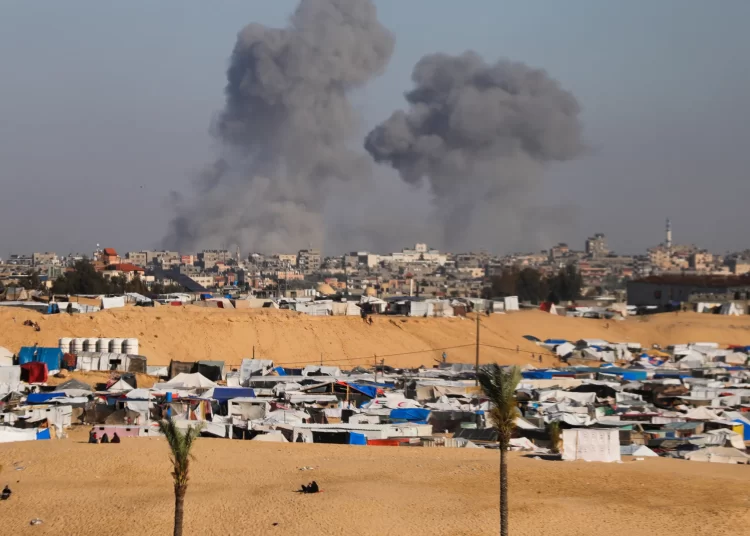An Israeli tank brigade seized control on Tuesday of the Gaza Strip side of the Rafah border crossing with Egypt as Israel moved forward with an offensive in the southern city even as ceasefire negotiations with Hamas remain on a knife’s edge.
The development came after hours of whiplash in the Israel-Hamas war on Monday saying it accepted an Egyptian-Qatari mediated ceasefire proposal. Israel, meanwhile, insisted the deal did not meet its core demands.
The high-stakes diplomatic moves and military brinkmanship left a glimmer of hope alive — if only barely — for an accord that could bring at least a pause in the 7-month-old war that has devastated the Gaza Strip.
The Israeli incursion overnight appeared to be short of the full-fledged offensive into Rafah that Israel has planned, and it was not immediately known if it would be expanded. President Joe Biden on Monday urgently warned Israeli Prime Minister Benjamin Netanyahu against launching an offensive on the southern Gaza city, hiking pressure for a ceasefire.
Aid groups say an attack would be catastrophic for the around 1.4 million Palestinians crammed into Rafah, most of whom fled Israel’s onslaught elsewhere in Gaza.
The Israeli 401st Brigade entered the Rafah crossing early on Tuesday, the Israeli military said, taking “operational control” of the crucial border point. Footage released by the Israeli military showed Israeli flags flying from tanks that seized the crossing area. Details of the video matched known features of the crossing.
The military also carried out a flurry of strikes and bombardment across Rafah overnight, killing at least 23 Palestinians, including at least six women and five children, according to hospital records seen by The Associated Press.
The Rafah crossing is the main route for aid entering the besieged enclave and exit for those able to flee into Egypt. Both Rafah and the Kerem Shalom crossing between Israel and Gaza, the other main aid entry point, have been closed for at least the past two days. Though smaller entry points still operate, the closure is a blow to efforts to maintain the flow of food, medicine and other supplies that are keeping Gaza’s population alive.






Discussion about this post